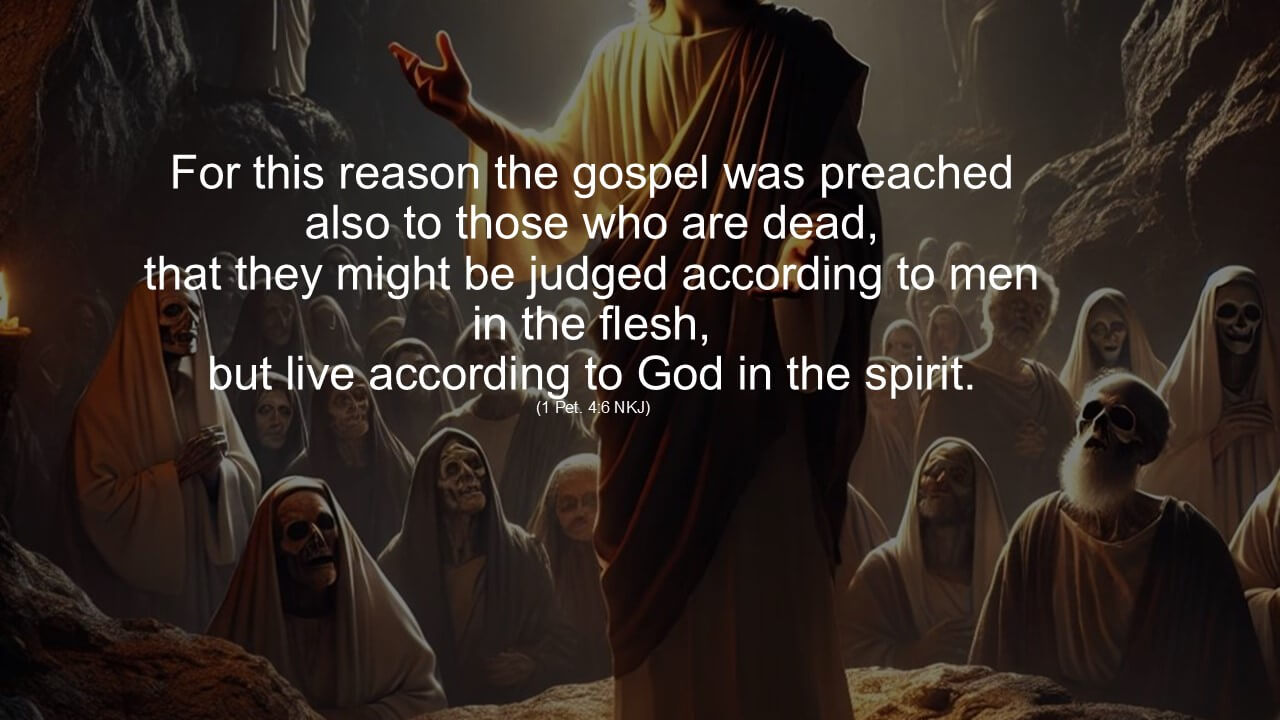The question of whether early Christian writers interpreted 1 Peter 4:6 as indicating that the gospel was preached to the dead is indeed fascinating and has been a subject of theological and historical debate. 1 Peter 4:6 states:
For this reason the gospel was preached also to those who are dead, that they might be judged according to men in the flesh, but live according to God in the spirit.
In the first few centuries of Christianity, interpretations of this passage varied, with some early church writers indeed taking it to mean that the gospel was preached to the dead in some form. Here’s an overview of key early Christian interpretations and sources:
- Clement of Alexandria (c. 150–215 AD)
- Clement of Alexandria is one of the earliest writers to refer to the preaching of the gospel to the dead. He interprets 1 Peter 4:6 as indicating that Christ preached to souls in Hades. In his work Stromata, Clement describes how the gospel was preached to all those who had died prior to Christ’s coming, offering them the same opportunity for salvation that was offered to the living.
- Origen (c. 185–253 AD)
- Origen, a prominent early Christian theologian, also believed that Christ descended to the dead to preach to the souls in Hades. In his commentary on 1 Peter and other works, Origen interprets this passage to mean that the gospel was preached to those who had not had the chance to hear it during their earthly lives. He connects this with the broader concept of the “harrowing of hell,” where Christ’s descent offered salvation to the righteous dead.
- Irenaeus of Lyons (c. 130–202 AD)
- Irenaeus touches on the concept in his Against Heresies. While he does not focus specifically on 1 Peter 4:6, he does affirm the idea that Christ descended to the place of the dead (or Hades) and liberated the righteous souls. Irenaeus views this as part of Christ’s mission to bring salvation to all, including those who had died before His incarnation.
- Hippolytus of Rome (c. 170–235 AD)
- In Hippolytus’ commentary and works, he reflects on the early Christian belief in Christ’s descent to the dead, a concept rooted in passages like 1 Peter 4:6 and 1 Peter 3:19, which describes Christ proclaiming to “spirits in prison.” Hippolytus emphasizes that this was an act of salvation extended even to those who had already died, a view consistent with the interpretation that the gospel was preached to the dead.
- Tertullian (c. 155–220 AD)
- Tertullian, while somewhat ambiguous, seems to acknowledge in On the Soul that Christ’s descent involved preaching to souls in Hades. Though Tertullian is more conservative in interpreting the specifics of who could be saved posthumously, he does connect this event with God’s justice and mercy in offering salvation universally.
- Athanasius (c. 296–373 AD)
- Athanasius does not provide an extensive commentary on 1 Peter 4:6, but he does affirm in On the Incarnation the early church’s belief in Christ’s descent to Hades. Athanasius argues that Christ’s work extended to all realms, including the underworld, which aligns with the view that the gospel’s power reached even the dead.
- Gregory of Nyssa (c. 335–395 AD)
- Gregory of Nyssa was among those who supported the interpretation that the gospel reached the dead. In his Oratio Catechetica, he explains how Christ’s redemptive work was cosmic and extended to all, even to those who had died. Gregory sees this as a testament to God’s mercy and justice, a view that echoes the interpretation of 1 Peter 4:6.
- Ambrose of Milan (c. 340–397 AD)
- Ambrose comments on the idea of Christ’s descent in his sermons and writings. He interprets it as an act of salvation for those who had died in righteousness but without knowledge of Christ, thus resonating with 1 Peter 4:6’s message of the gospel being preached to the dead.
Summary of Early Interpretations
Most early church fathers interpreted 1 Peter 4:6 as affirming that Christ’s salvation work included the realm of the dead. This was often linked with the “harrowing of hell,” where Christ descended to Hades and preached to the righteous dead, offering them the opportunity for redemption. This view illustrates early Christianity’s broad understanding of God’s offering of salvation as Cosmic, extending even to those who had passed away before the revelation of Christ.
Conclusion
Yes, 1 Peter 4:6 was cited by early Christian writers as teaching that the gospel was, in some form, preached to the dead. This interpretation was part of a broader understanding in early Christianity that emphasized the universality of Christ’s salvific mission, even extending to those who had died without knowing the gospel.
